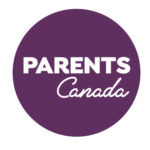Toddler
2 min Read
Listen Up!

April 15, 2008
Toddler
2 min Read

April 15, 2008
 Undetected hearing problems may lead to behavioural, emotional or learning difficulties.
Undetected hearing problems may lead to behavioural, emotional or learning difficulties.
12 to 18 months
• follows simple spoken directions
• points to people, body parts or toys when asked
• uses connected sounds that sound like sentences
• uses 10 or more words
• uses common expressions like “oh no”, and “all gone”
What you can do to help
• Look at books and tell stories about the pictures.
• Talk back to your child when she talks to you.
• Use real words, not baby talk (say “bottle” not “baba”).
• Pay attention to what your child is saying, not how she
says it.
• Play games and use toys and objects that your child
enjoys.
18 to 24 months
• uses 20 or more words
• combines two or more words, such as more juice
• uses many different speech sounds at beginning of words
• takes turns ‘talking’ back and forth with you
• listens to simple stories, rhymes and songs
• Use different kinds of words when you talk with your child.
• Encourage your child to play with other children.
• Name and copy different sounds your child hears.
• Use the adult way of saying words or phrases without correcting your child directly (e.g., child says “daddy car,” you say “Yes, daddy’s in the car. Let’s go.”). If you have any concerns about your child’s hearing, discuss them with your doctor.
For down loadable brochures, visit:
ihp.mtsinai.on.ca
Source: Ontario Infant Hearing Programs and the Canadian Academy of Audiology